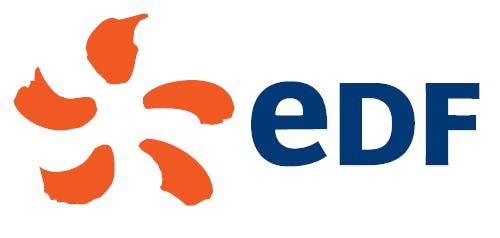For items for which the standard is identical (e.g. GHG protocol) or close to the standards used in France and Europe, EDF’s 2021 Statement of Non-Financial Performance covers most of the reporting topics required by the SASB for the “Electric Utilities & Power generators” sector:
| NFPS Sections | |
|---|---|
| Greenhouse Gas Emission & Energy Resources Planning | Greenhouse Gas Emission & Energy Resources Planning NFPS Sections Section 3.1.1 |
| Air Quality | Air Quality NFPS Sections Section 3.3.1.5 |
| Water Management | Water Management NFPS Sections Section 3.2.3 |
| Coal Ash Management | Coal Ash Management NFPS Sections Section 3.2.4.4.2 |
| Energy Affordability | Energy Affordability NFPS Sections Section 3.1.4.2.4 |
| End use efficiency and Demand | End use efficiency and Demand NFPS Sections Section 3.1.4.3 |
| Nuclear Safety and Emergency management | Nuclear Safety and Emergency management NFPS Sections Section 3.3.1.1 |
| Grid Resiliency | Grid Resiliency NFPS Sections Section 3.1.4.2.1 |
3.8.3 Details on the taxonomy
3.8.3.1 Regulatory framework
On 4 June 2021, the European Commission, pursuant to regulation 2020/852 of 18 June 2020 (known as “Taxonomy regulation”), adopted the Delegated Act to determine the conditions under which economic activities can be considered as contributing substantially to climate objectives. On 6 July 2021, the Delegated Act known as “Article 8” relating to the content and presentation of information to be communicated was in turn adopted.
With a view to contributing to the achievement of carbon neutrality by 2050, the objective of this regulation is to determine which economic activities are considered environmentally sustainable in order to direct capital flows towards them, according to transparent criteria.
In accordance with the Taxonomy regulation and the procedures defined by the “Article 8” Delegated Act, three indicators based on the Group’s consolidated financial statements are published below: the proportion of turnover, of capital expenditure (“CAPEX”) and of operating expenditure (“OPEX”) associated with economic activities considered, on the one hand, as eligible and, on the other hand, as aligned with the technical criteria of Taxonomy, as detailed in section 3.8.3.2 below.
For the first year of implementation, non-financial companies must only disclose:
- indicators for fiscal year 2021 data without comparative information.
The EDF group has organised itself to be able to communicate information beyond the obligations required by the text by 31 December 2021, i.e. to communicate the eligible and aligned shares of its activities for the 3 indicators.
Beside, the texts applicable as of 1 January 2022 do not cover nuclear power generation, which is the Group’s main activity. They also do not cover gas-related activities. A specific Delegated Act for nuclear and gas was adopted on 2 February
2022, and still needs to go through a review process by the European Parliament and the Council of the EU, before final adoption and publication in the Official Journal of the EU, which could occur in the summer of 2022.
The Group has carried out a preliminary analysis of this text and presents below its initial conclusions regarding eligibility (see section 3.8.3.3). As this text was not in force on 1 January 2022, in the indicators presented below, both the nuclear and gas activities are presented in the category “not eligible under the texts in force” and are the subject of additional information integrating the expected effects of this new text (see section 3.8.3.4).
Due to the sometimes insufficiently precise nature of the European regulatory framework for the classification of activities and the definition of indicators, the Group has had to adopt assumptions and methods that are described in this document whenever they are material.
3.8.3.2 Definition of eligibility and alignment
The Taxonomy regulation creates a framework and principles for assessing the contribution of economic activities to the following six environmental objectives:
|
Climate change |
Climate change adaptation |
Sustainable use and |
Transition to a circular
|
Pollution prevention
|
Protection and restoration of biodiversity and
|
In accordance with the Delegated Act adopted on 4 June 2021, an activity is considered eligible if it is included in the list of activities in Annexes I and II.
